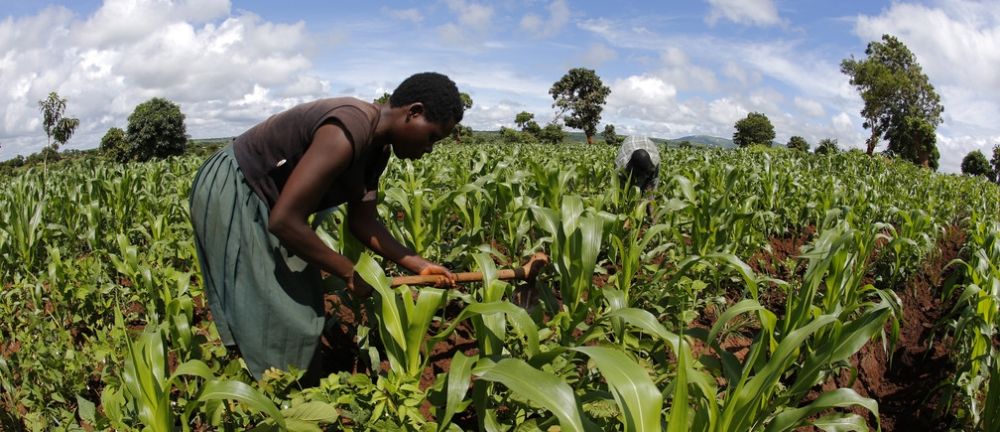New technology is transforming Africa’s agricultural industry
Agriculture has a significant role in Africa as it employs 65% of the work force and contributes 32% of GDP, according to the World Bank.

Agriculture has a significant role in Africa as it employs 65% of the work force and contributes 32% of GDP, according to the World Bank.
Similarly, approximately 70% of Africa's population depend directly on agriculture for their livelihood.
However, the African agricultural industry is currently facing a number of problems with low productivity. This has been compounded by climate change, a lack of technical expertise and the migration of young people away from rural areas and into cities.
Africa is currently experiencing a rapid growth in population, with estimates suggesting by 2050 the population for Africa will reach 2.2 billion. The ability of African farmers to increase productivity is critical in order to provide food and economic growth to support its growing population.
The Food and Agriculture Organisation (FAO) predicts that the agricultural market in Sub-Saharan Africa alone will grow from $200 billion in 2015 to $1 trillion by 2030. This equates to a fivefold growth.
Entrepreneurs in Africa are increasingly seeing opportunities in the agricultural sector and are developing solutions that enable farmers to increase their yields and access markets. Globally, agricultural tech start-ups raised $800 million in the last 5 years.
Investors have also recognised the potential of Africa’s agricultural industry as there is potential to reach a large market. According to Disrupt Africa’s recently released African Tech Start-ups Funding Report 2017, agri-tech start-ups received US$13.2 million in funding last year, the fourth largest of any sector.
This was an increase of 203% from 2016. The rapid growth of agri-tech business in Africa is demonstrated by the increase of over 13 million in funding since just 2015, where funding was $50,000.
Much of the funding in 2017 went to Twiga Foods which raised $10.3 million. Launched in 2014, Twiga Foods uses technology to consolidate the fragmented purchasing power of urban retailers, by delivering better quality and better priced stock.
Grant Brooke, Twiga Foods chief executive officer (CEO) commented:
“Agriculture is one of the largest, and most untapped by technology, sectors of the economy. I think investors are targeting agriculture because it’s a huge market that touches just about everyone”
In recent years technology such as cloud computing, open-source software and digital tools have become increasingly affordable and accessible to farmers. The market is changing as entrepreneurs can provide solutions to small holder farmers at affordable prices.
Technological developments in such as aerial imagery from drones or satellites, weather forecasts and soil sensors are making it easier for farmers to manage their crops in real time.
In addition, financial solutions are evolving to connect small holder farmers with credit, financial institutions and greater market access.
Technological advancements in agriculture provide vast potential for farmers, entrepreneurs and investors to improve the productivity and efficiency of agriculture in Africa at a time when numerous factors, such as population growth and climate change, threaten food security.
Our sister organisation, Aid & International Development Forum, is hosting its inaugural Africa Climate Smart Agriculture Summit on 15-16th May 2018 in Nairobi, Kenya. The summit will discuss innovations and challenges in CSA practices, increasing cross industry collaboration for CSA, financial investment for CSA and much more.
Image: Mike Hutchings


